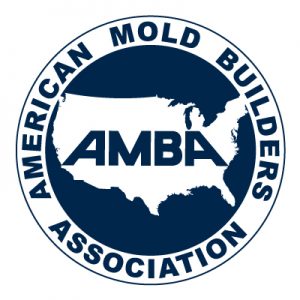
U.S. industry group wants tariffs on Chinese molds reinstated
Canadian Plastics
Economy MoldmakingThe American Mold Builders Association has formally asked the Office of the U.S. Trade Representative to bring back the 25 per cent tariff, which was put on hold last December.

Image Credit: AMBA
Advocacy group the American Mold Builders Association (AMBA) has filed a formal comment with the Office of the U.S. Trade Representative (USTR,) asking it to bring back the 25 per cent tariff on Chinese injection molds.
In July 2018, the U.S. government imposed the 25 per cent tariff on imported plastic injection molds from China. On Dec. 28, 2018, however, the government put a hold on the tariff. Importers and manufacturers had until Nov. 30, 2019 to register their support or opposition for extending the tariff suspension or reinstating the 25 per cent tariff on Chinese imports. The comments were requested ahead of the scheduled Dec. 28, 2019 deadline, when the USTR is scheduled to reinstate the tariffs.
Last month, the AMBA hired Washington lobby firm Franklin Partnership to call on the Trump Administration to bring back tariffs on injection molds made in China. “Under President Trump, American manufacturing has grown due to many of his policies enacted,” AMBA managing director Kym Conis said in a Nov. 11 statement. “When the Trump Administration announced that 25 per cent tariffs on imported Chinese molds would take effect in July 2018, our members immediately saw an increase in business and requests for quotes; however, once the U.S. Trade Representative granted the exclusion from the tariffs, those orders dried up.”
The AMBA’s formal submission to USTR – filed on Nov. 29 – identified, “a recent survey by Harbour Results Inc., manufacturing consultants with an expertise in downstream industries, show[ing] that 60 per cent of mold builders reported losing more business in 2019 to low-cost countries compared to previous years.”
“We recognize the challenges seeking structural reforms in China and applaud USTR for working to address these issues long overlooked by previous administrations,” Kym Conis said in a Nov. 29 statement. “However, we remain concerned too many [import exclusion] requesters are using price as their primary motivation for requesting a 301 tariff exclusion extension and have not made significant efforts to identify U.S. or third-country alternatives, which are readily available.”
Founded in 1973 and headquartered in Indianapolis, Ind., AMBA has 200 member companies and over 50 partner companies (supplier members).
